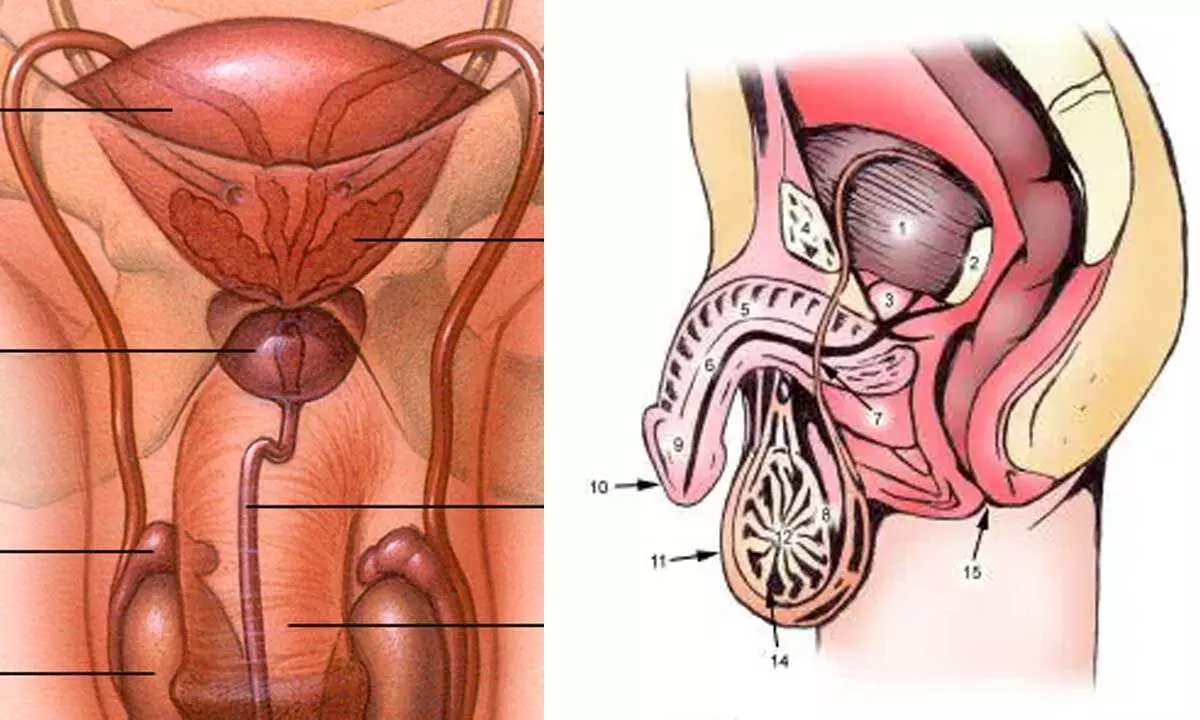Live
- Three persons admitted to hospital for diarrhea treatment
- First Star Outside Milky Way Captured: WOH G64 is 2,000 Times Larger Than the Sun
- Sikkim govt to constitute state Niti Ayog: CM Tamang
- CBI books Rajasthan narcotics inspector for Rs 3 lakh bribe
- Rajasthan bypolls: A tough contest between BJP and Congress
- Albania joins SEPA, paving way for EU integration
- Japanese government approves 250-billion USD economic package to ease price pain
- Six pharma companies to set up their units in Telangana
- The Unstable Events of a 17-Wicket Day in Perth: India vs Australia
- Dutch FM's Israel trip cancelled after Netanyahu's arrest warrant
Just In
Is Male Infertility Linked to Penis Size?


Male infertility is a topic of increasing concern in today's world, with numerous factors contributing to this complex issue.
Male infertility is a topic of increasing concern in today's world, with numerous factors contributing to this complex issue. One question that has occasionally surfaced is whether there is a link between penis size and male infertility. This notion has led to many misconceptions and anxieties among men. However, it's essential to separate fact from fiction and explore the scientific realities behind this question.
The Anatomy of Male Reproductive Health
To understand the potential link between penis size and male infertility, it's crucial to delve into the basics of male reproductive anatomy. Male fertility primarily depends on the quantity and quality of sperm produced and their ability to reach and fertilize an egg. This process involves various organs, including the testes, epididymis, vas deferens, and the penis, each with a distinct role in reproduction.
Penis Size vs. Male Fertility
Contrary to popular belief, penis size does not play a direct role in male fertility. Infertility issues are usually rooted in factors that are entirely unrelated to the size of a man's penis. Here are some essential points to consider:
Sperm Production: The primary determinant of male fertility is the production of healthy and motile sperm. This process occurs in the testes, and the size of the penis has no bearing on this aspect of reproductive health.
Ejaculation: The penis's size does not affect a man's ability to ejaculate, which is crucial for delivering sperm into the female reproductive tract. The ability to ejaculate is not influenced by the size of the penis but rather by the functionality of the reproductive organs.
Fertilization: For fertilization to occur, sperm must be able to reach the female egg. The size of the penis does not impact this process, as it is governed by the functionality of the sperm themselves.
Health Factors: Male infertility is often linked to underlying health conditions, such as hormonal imbalances, infections, genetic factors, and lifestyle choices like smoking or excessive alcohol consumption. Penis size does not play a role in these factors.
Addressing Misconceptions
The notion that penis size is linked to male fertility is a misconception that can lead to unnecessary anxiety and insecurity among men. It's essential to debunk this myth and promote a more accurate understanding of male reproductive health. Men should focus on factors that are genuinely relevant to fertility, such as maintaining a healthy lifestyle, managing stress, and seeking medical advice if fertility issues arise.
Seeking Help for Male Infertility
If a couple is experiencing difficulty conceiving, it is essential to consult a medical professional. A thorough evaluation can identify the root causes of infertility, which are far more likely to be related to sperm quality, hormonal imbalances, or other health issues rather than penis size.
Conclusion
In summary, there is no scientific evidence to support a direct link between penis size and male infertility. Fertility issues in men are primarily related to sperm quality, quantity, and overall reproductive health, which are determined by various factors unrelated to penis size. It is crucial to dispel the misconception that penis size is a significant factor in male fertility and focus on addressing the genuine causes of infertility. If infertility is a concern, seeking medical advice and support is the best course of action to determine and address the underlying issues.
(Dr Anu Sadashiv, Reproductive Medicine Specialist at Milann Fertility and Birthing Hospital KumaraPark Bangalore)

© 2024 Hyderabad Media House Limited/The Hans India. All rights reserved. Powered by hocalwire.com






